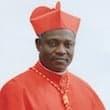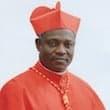Explore Pope Francis's encyclical on environmental care and sustainable development through this comprehensive overview.
Explore Pope Francis's encyclical on environmental care and sustainable development through this comprehensive overview.
This mini-course examines Pope Francis's influential encyclical "Laudato si': On Care for Our Common Home," which addresses the global ecological crisis. The course explores the document's main themes, from diagnosing environmental challenges to proposing solutions at institutional and personal levels. Students learn about the theological and philosophical foundations of environmental stewardship, while examining practical approaches to sustainable development. The course connects papal teaching with contemporary environmental challenges, making it relevant for both religious and secular audiences interested in environmental ethics and sustainable development.
Instructors:
English
English, Spanish
What you'll learn
Understand the origins and significance of Laudato si'
Analyze the human roots of the ecological crisis
Evaluate global, national, and local environmental solutions
Explore the connection between faith and environmental action
Develop strategies for personal and institutional ecological conversion
Skills you'll gain
This course includes:
PreRecorded video
Graded assignments, exams
Access on Mobile, Tablet, Desktop
Limited Access access
Shareable certificate
Closed caption
Get a Completion Certificate
Share your certificate with prospective employers and your professional network on LinkedIn.
Created by
Provided by

Top companies offer this course to their employees
Top companies provide this course to enhance their employees' skills, ensuring they excel in handling complex projects and drive organizational success.





There are 6 modules in this course
This course provides a comprehensive overview of Pope Francis's encyclical "Laudato si'" and its implications for sustainable development. Through six modules, students explore the context of the papal document, its analysis of environmental challenges, theological foundations, and proposed solutions at global and local levels. The course emphasizes the interconnection between environmental and social issues, examining both institutional responses and personal transformation needed to address the ecological crisis.
Pope Francis & the Encyclical
Module 1 · 2 Hours to complete
On Care for Our Common Home
Module 2 · 2 Hours to complete
Theology, Philosophy & the Encyclical
Module 3 · 2 Hours to complete
Human Roots of the Ecological Crisis
Module 4 · 2 Hours to complete
Global, National & Local Solutions
Module 5 · 2 Hours to complete
International Ecological Conversion
Module 6 · 2 Hours to complete
Fee Structure
Instructors

19 Courses
Sustainable Development and Economic Policy Pioneer
Jeffrey D. Sachs stands as one of the world's most influential economists and sustainable development experts, currently serving as University Professor at Columbia University and Director of the Center for Sustainable Development. His academic journey began at Harvard University, where he earned his B.A., M.A., and Ph.D. degrees, and later served as the Galen L. Stone Professor of International Trade for over twenty years. Throughout his career, Sachs has shaped global policy as Special Advisor to three UN Secretaries-General, advising on both the Millennium Development Goals and Sustainable Development Goals. His expertise spans economic development, global macroeconomics, and poverty alleviation, having worked in more than 125 countries. As Director of the UN Sustainable Development Solutions Network and President of SDG USA, he continues to drive sustainable development initiatives worldwide. His influential works include bestsellers such as "The End of Poverty," "Common Wealth: Economics for a Crowded Planet," and "The Age of Sustainable Development." His achievements have earned him numerous accolades, including the 2015 Blue Planet Prize and the 2022 Tang Prize in Sustainable Development, while Time Magazine has twice named him among the world's 100 most influential leaders. Beyond his academic work, he serves as a Commissioner of the ITU/UNESCO Broadband Commission for Development and maintains active engagement with the Pontifical Academy of Sciences and Social Sciences on sustainable development issues.

1 Course
Pioneering Cardinal Bridging Faith, Science and Environmental Stewardship
Cardinal Peter Kodwo Appiah Turkson serves as Chancellor of the Pontifical Academy of Sciences and Social Sciences, marking a distinguished career that began with his historic appointment as the first Ghanaian cardinal in 2003. After completing his doctorate in Sacred Scripture from the Pontifical Biblical Institute in Rome, he has held numerous influential positions including Archbishop of Cape Coast, President of the Pontifical Council for Justice and Peace, and inaugural prefect of the Dicastery for the Promotion of Integral Human Development. His work uniquely combines religious leadership with environmental advocacy and social justice, particularly through his contributions to Pope Francis's encyclical "Laudato Si'" on environmental stewardship. As a prominent voice in both religious and scientific circles, he continues to advance dialogue between faith and science while serving on multiple Vatican dicasteries and undertaking peace missions to conflict regions. His leadership extends beyond traditional religious roles to address contemporary global challenges, including climate change, sustainable development, and social inequality, making him a pivotal figure in the Catholic Church's engagement with modern social and environmental issues.
Testimonials
Testimonials and success stories are a testament to the quality of this program and its impact on your career and learning journey. Be the first to help others make an informed decision by sharing your review of the course.
Frequently asked questions
Below are some of the most commonly asked questions about this course. We aim to provide clear and concise answers to help you better understand the course content, structure, and any other relevant information. If you have any additional questions or if your question is not listed here, please don't hesitate to reach out to our support team for further assistance.



